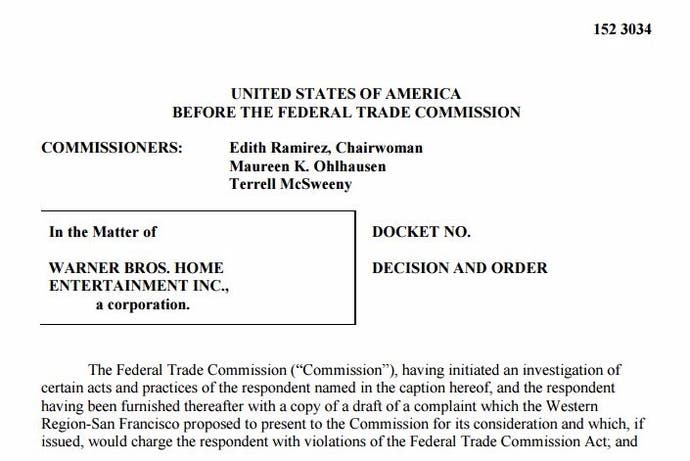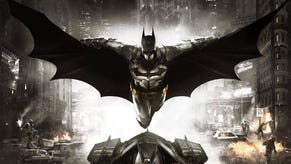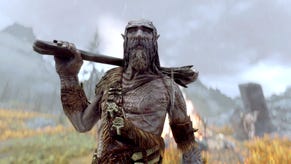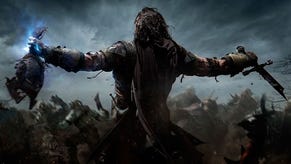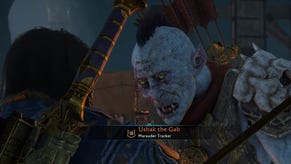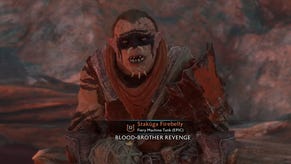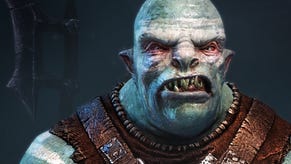Warner Bros. "misled" with paid-for positive Shadow of Mordor videos
UPDATE: Pewdiepie responds to allegations.
UPDATE 13/07/2016 11.07pm: Popular YouTube personality Felix "PewDiePie" Kjellberg has addressed Warner Bros.' Middle-earth: Shadow of Mordor YouTube promotion controversy in a new video where he explained that he fully disclosed his relationship with the game publisher and believes he is unfairly being singled out.
"It's right there!" Kjellberg exclaimed in the following video showing the disclaimer "This video was sponsored by Warner Brother". Of course, the disclaimer only shows up when one hits the "show more" option under the description.
To that Kjellberg explained "This was two years ago and the FTC didn't release guidelines to YouTube until 2015. And this video was in 2014."
These days Kjellberg offers disclaimers for sponsored content in the intro of a video itself as well as at the top of the text. Much has changed in the past two years.
"We weren't required to disclose. I still did it," Kjellberg said of the 2014 video. "Some other YouTubers didn't disclose it, but I'm getting all the s*** for it."
"Yes, I could have disclosed it better," Kjellberg admitted. "I could have put it above the fold. So basically, all of these news articles are using me as a clickbait, putting my name to shame, when I didn't even do anything wrong."
"If I did something wrong, I should be paying the consequences. In this case, I don't think I did anything wrong."
ORIGINAL STORY 12/07/2016 12.10pm: Middle-earth: Shadow of Mordor publisher Warner Bros. has been rapped by the US Federal Trade Commission for deceiving customers with a paid-for YouTube promotion.
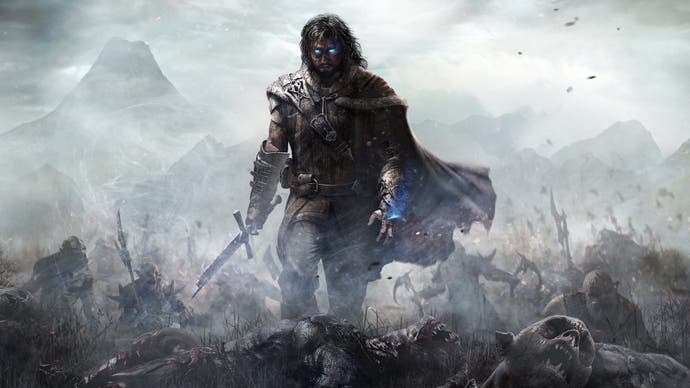
Numerous YouTube "influencers" were paid thousands of dollars to generate positive promotional content featuring Shadow of Mordor.
YouTube stars were given a copy of the game before its release and told how to promote it. Videos generated by the scheme were watched more than 5.5m times, the FTC reported. A single video from PewDiePie alone generated 3.7m views.
Of course, sponsored content is not unusual on YouTube, but Warner Bros. fell foul of the FTC for the way it told YouTubers to disclose the deal.
Specifically, it asked YouTubers to place the detail that a video was sponsored within the description box below the video itself, and even then after other text which ensured the disclosure note was hidden below the "show more" option.
Warner Bros., through its marketing partner Plaid Social Labs, was also found to have instructed YouTubers not to show any bugs or glitches they discovered.
To be fair to Warner Bros. - far, far worse occurs on YouTube every day. Content that's clearly sponsored or paid for is often not labelled as such at all, and YouTube is rife with young stars getting paid thousands to feature a particular product.
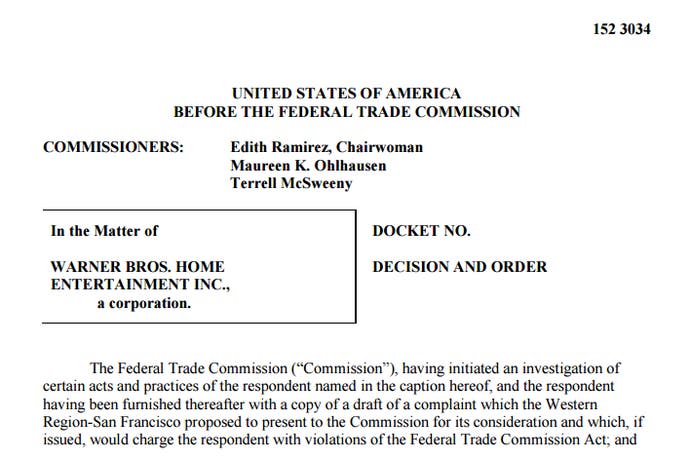
The FTC only investigates what people report to it. And, like any official body, it takes a while to do so - Shadow of Mordor released back in September 2014.
So it's going to be a while before we see the FTC weigh in on anything as recent as last week's YouTube gambling controversy, where two top stars were discovered to be promoting a Counter-Strike lotto site they actually owned.
And while we've seen how last week's drama caused one YouTuber to retroactively add promotional labels to his content, the vast, vast majority of the platform is still a Wild West.
One week on from last week's hubbub and both Trevor "TmarTn" Martin and Tom "Syndicate" Cassell are back to their regularly scheduled programming, with barely a dip in subscriber counts.
This isn't the first time the FTC has told off a video game company for not properly disclosing paid-for YouTube promotions. In 2015 the FTC clamped down on clamped down on Machinima, an organisation of YouTubers that focus mainly on video games, which it deemed failed to disclose they were paid by Microsoft to say nice things about Xbox One and its games.
